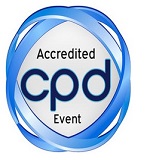
Donald Pinkston Francis
Global Solutions for Infectious Diseases, USA
Title: WHO technology transfer activities for influenza vaccines
Biography
Biography: Donald Pinkston Francis
Abstract
The World Health Organization states that, “Though the world is better prepared for the next pandemic than ever before, it remains highly vulnerable, especially to a pandemic that causes severe disease. Nothing about influenza is predictable, including where the next pandemic might emerge and which virus might be responsible.” WHO’s preparations to minimize the impact of influenza virus related disease cover a wide variety of activities that include surveillance of circulating viruses (in both birds and humans), supplying current circulating virus reagents for clinical diagnosis of cases, efforts to expand influenza vaccine production in lower and middle income countries and collaboration and support of trials to evaluate vaccines in people. The surveillance efforts are essential to identifying circulating viruses so subsequent control activities can be matched to the strain and clinical severity of the disease. In 2014, 142 laboratories in 112 countries joined together in what is known as the Global Influenza Surveillance and Response System. The laboratories in that system tested more than 1.9 million clinical specimens. To speed the diagnostic capabilities for this rapidly changing infection, WHO supplies reagents capable of identifying the latest circulating viruses; for example for the 2009 when the H1N1 outbreak was declared a public health emergency, WHO shipped out diagnostic reagents to laboratories within seven days. More recently WHO has put in place influenza specific systems to speed new vaccine production technologies and set systems to speed each country’s regulatory approval system for influenza vaccines. These activities are crucial to protecting the public’s health against the constant onslaught of new and emerging influenza viruses.

